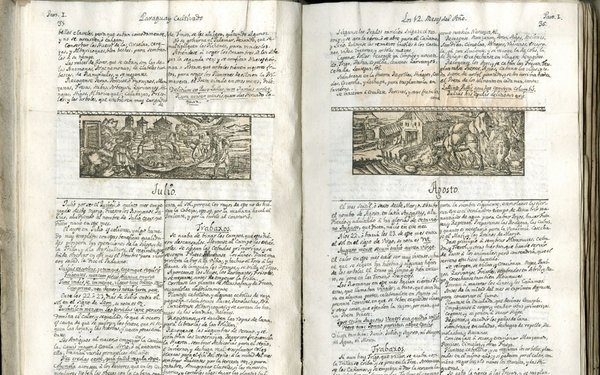Press releases
Gaining a better understanding of the structure of molecules with quantum computing
A new research project at the interface of computer science and chemistry is investigating how algorithms for quantum computers can reliably calculate complex molecules. This could help to better understand chemical reactions. The Institute of Computer Science at the University of Augsburg is collaborating with TU Darmstadt and the pharmaceutical company Merck on the project.

What happens in the brain after a stroke?
Strokes are one of the main causes of long-term physical and cognitive impairment. A DFG project at the University of Augsburg is researching cellular level processes in the brain following an ischemic stroke, in which the blood supply to the brain is interrupted. These processes are poorly understood and could be the key to new therapies.

When the body doesn't want to lose weight
Obesity increases the risk of numerous secondary diseases such as type 2 diabetes, high blood pressure and mental illness. Prof. Dr. Kerstin Stemmer explains the role of genetics in weight loss and the effect of GLP-1 weight loss medication. She is researching the extent to which fat cells can communicate directly with the pancreas in order to stimulate insulin production.

A previously unknown classic in Latin American history set to be published for the first time
José Francisco Sánchez Labrador (1717–1798) was one of the most prolific Jesuit authors of his time in South America. However, his magnum opus, a comprehensive three-part encyclopaedic description of Gran Paraguay, has never been printed in its entirety. Now, a DFG-funded project is examining the third part of the trilogy: the manuscript Paraguay Cultivado.

Holistic approach to responsible AI
From the initial idea through to development, implementation, and evaluation, how can Artificial Intelligence (AI) be designed so as to be responsible through its entire lifecycle? What knowledge and attitudes should people involved in the field have? Miriam Elia from the University of Augsburg, together with other researchers, has researched these questions.

How robots are becoming more like us
How should the voice of a humanoid robot sound in order to be perceived as pleasant by humans? This is the subject of a project at the Chair for Human-Centred Artificial Intelligence at the University of Augsburg. The project aims to find out whether a personalised robot voice, or more precisely, a voice that resembles that of the user, increases perceived sympathy towards the robot.

Strategies for coping with emotions affect student well-being and academic achievement
Students experience a wide range of emotions in their everyday university life. Research conducted by Dr Kristina Stockinger from the Chair of Psychology shows that how they cope with these emotions affects their well-being, health, and academic achievement. Two particularly effective strategies are cognitive reappraisal and competence regulation.

The book The Toxic Ship wins two research awards

Ecological diversity on campus: University of Augsburg is committed to species conservation
With its meadows, woods and bodies of water, the University of Augsburg campus provides habitats for numerous animal and plant species. The green spaces are not only important for the climate and people, but also play a role in regional nature conservation. To ensure that these valuable areas are developed sustainably, the university is specifically promoting biodiversity with a further project.

"Future Music" - Open Day at the Leopold Mozart College of Music
On Sunday, March 2, 2025 from 11 a.m., the Music Education Institute of the University of Augsburg will open its doors for the annual open day for prospective students. Find out about the wide range of musical and and artistic-pedagogical courses on offer.

How effective is the use of medical imaging in everyday clinical practice?
Similar to a digital route planner, specific programmes support doctors in their everyday clinical work by selecting diagnostic and therapeutic procedures. The MIDAS study, led by Augsburg University Medicine, examined the effectiveness of such clinical decision-making aids for medical imaging in a multicentre, randomised study.

PFAS: how to better clean soil from ‘forever chemicals’
Soil contaminated with harmful perfluorinated and polyfluorinated alkyl substances (PFAS) is difficult to clean, a complete remediation is often not possible. To improve the remediation process, researchers at the University of Augsburg are trialling various cleaning methods. Their work is now being financially supported by the Bavarian Research Foundation.

